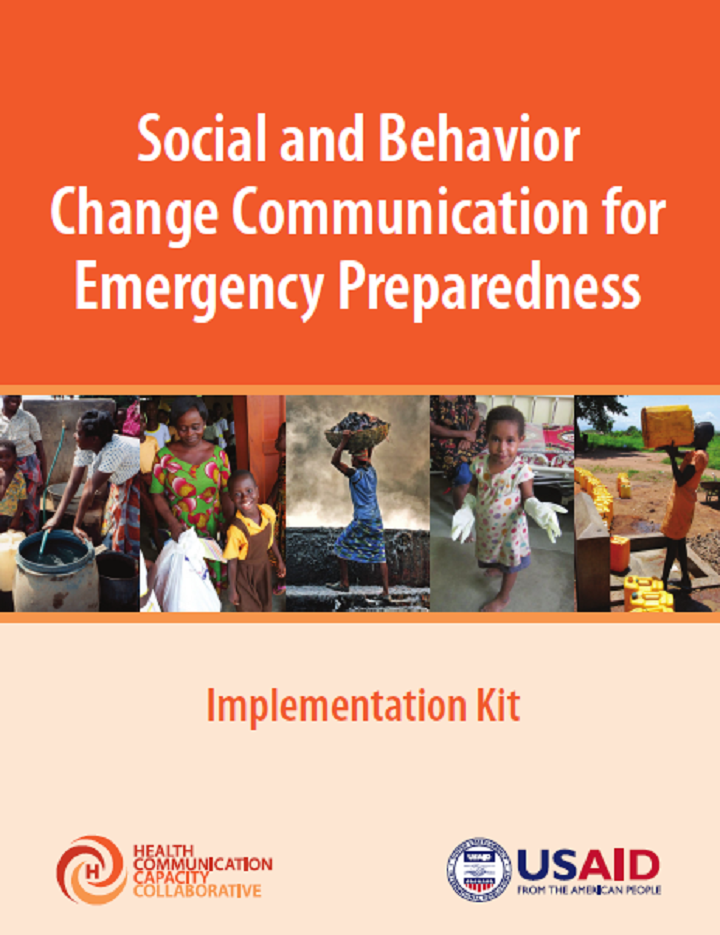SBCC for Emergency Preparedness. Implementation Kit Health Communication Capacity Collaborative (2016)
In the wake of Ebola and in the throes of the Zika outbreak, more focus than ever is on the importance of strong and resilient1 health systems that serve and promote the well-being of individuals, households and communities. Engaging in social and behavior change communication (SBCC) preparedness efforts as part of strengthening a health system, and certainly prior to a critical incident, can bolster a health system’s ability to respond to an emergency public health crisis. SBCC ensures that relevant stakeholders from different institutions are identified, understand their roles and can quickly engage together to solve a problem. They ensure that structures among various agencies and feedback loops – from communities to policymakers, managers and service providers – are established in advance to allow for a successful coordination of effort. These and other initiatives can contribute to an overall transformation of health systems, allowing them to function well and respond to emergencies when necessary.
Bibliographic information
Health Communication Capacity Collaborative (2016). SBCC for Emergency Preparedness. Implementation Kit Health Communication Capacity Collaborative
Filter / Tags
Guidelines and manualsEnglish

